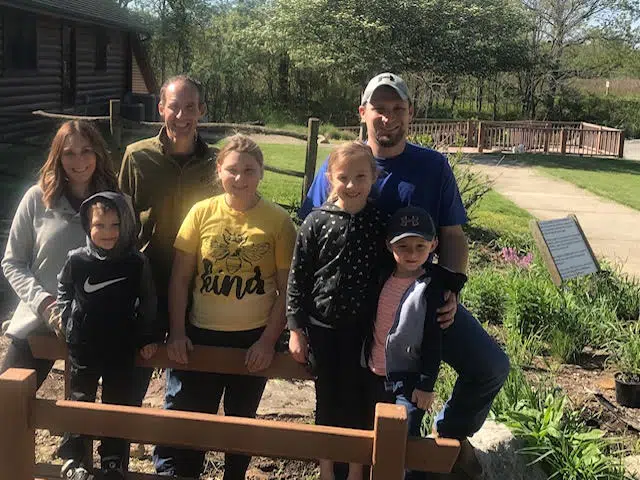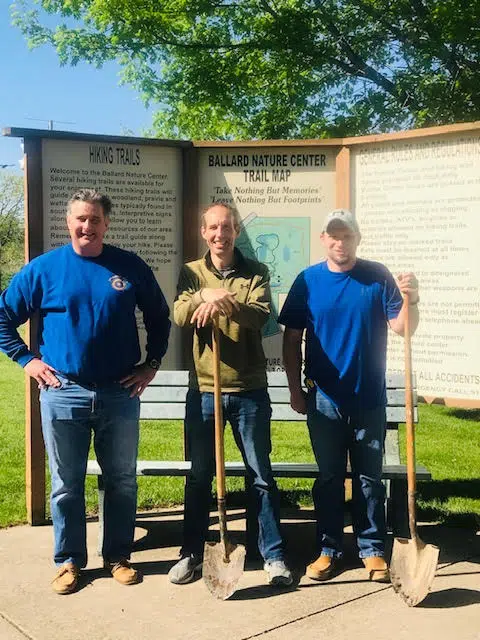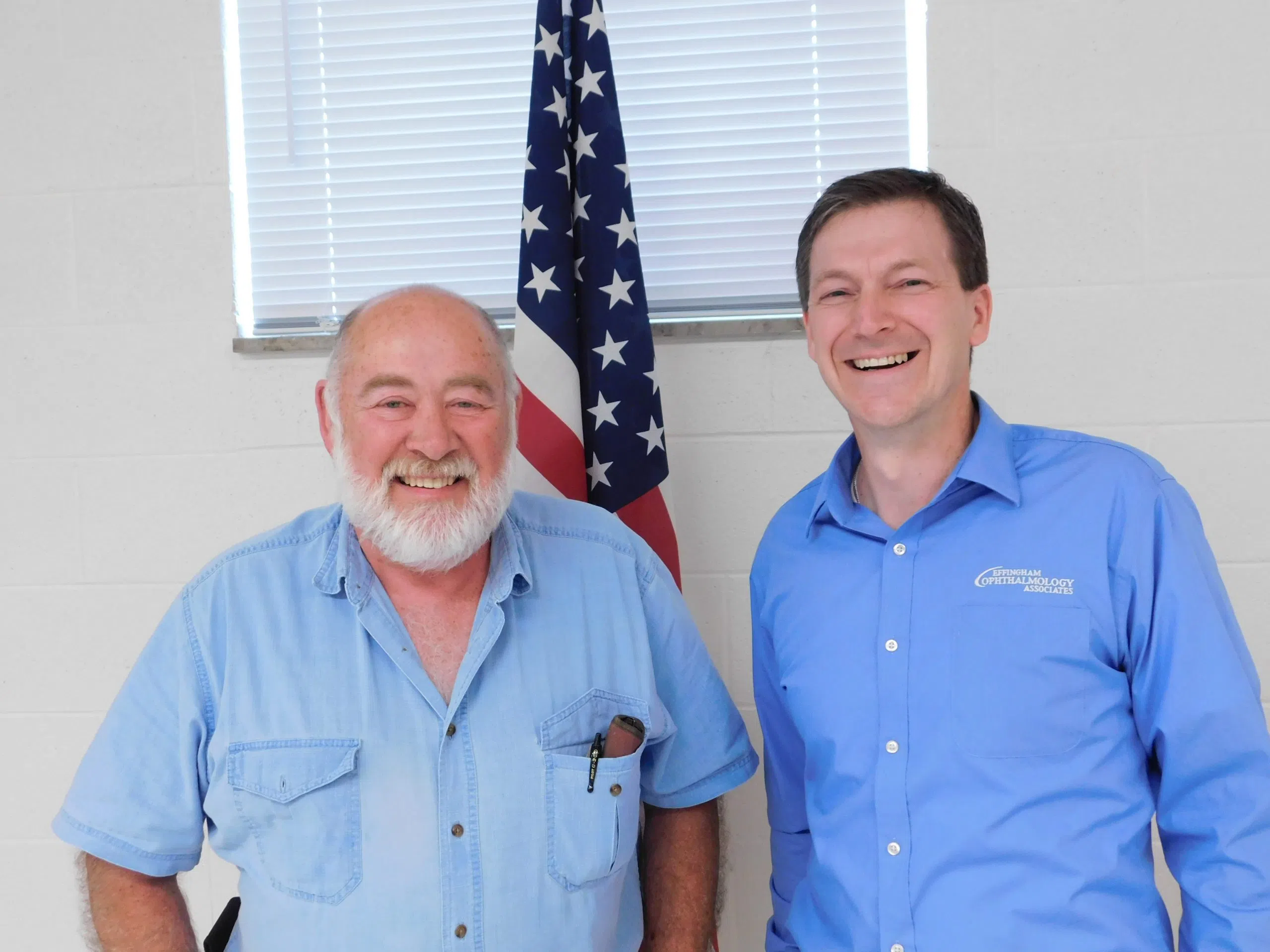
(ROTARY’S EFFORTS TO HELP WAS A FAMILY AFFAIR. LEFT TO RIGHT: RACHEAL FEARDAY, LIAM FEARDAY, JOE FEARDAY, RYLEE FEARDAY, KYNLEIGH DOTY, KORY DOTY AND KASE DOTY)
 Effingham, IL -(Effingham Radio)- The Effingham Noon Rotary Club joined forces with Rotarians worldwide to address the steep decline in pollinators across the globe.
Effingham, IL -(Effingham Radio)- The Effingham Noon Rotary Club joined forces with Rotarians worldwide to address the steep decline in pollinators across the globe.
Operation Pollination is an effort deployed by Rotary International to bolster the habitats of bees and other species that assist in critical plant pollination. Causes of pollinator decline include habitat loss, a changing environment, pesticides, and parasites. There are many different pollinator species located throughout the United States and the world, including bees, wasps, ants, butterflies, moths, beetles, flies, as well as birds and bats. In the United States alone, pollination by honey bees contributed to over $19 billion of crop production.

(NOON ROTARIANS JEFF BLOEMKER, JOE FEARDAY AND PRESIDENT KORY DOTY AT BALLARD NATURE CENTER)
The Effingham Noon Rotary Club chose to work cooperatively with Ballard Nature Center in Effingham County to bolster that pollinator environment. Club members planted specially selected plant varieties known to attract pollinators.
“Pollinators are essential to our every day life and many aspects of the food chain,” said Rotarian Joe Fearday, project organizer for the Noon Rotary Club. “Ballard Nature Center is an awesome asset for the Effingham community and they were extremely helpful with this project. Rotary really appreciates the opportunity to work with a quality organization such as Ballard Nature Center.”
More information about Operation Pollination can be found at: www.operationpollination.
More information about the Ballard Nature Center can be found at: www.ballardnaturecenter.
More information about Rotary international can be found at: www.rotary.org
Meanwhile, Noon Rotarians learned more about pollination and its importance to the food supply and to the variety of foods available at their meeting May 26.

(ROTARY WEEKLY GUEST SPEAKER DAVID DHOM AND ROTARY WEEKLY PROGRAM CHAIRMAN ERIC ZELLER)
David Dhom was Rotarian Eric Zeller’s guest. Dhom had much to share about his work as a beekeeper and his hydroponic operation in Jasper County, north of Ste. Marie.
Dhom said that while honey production is something he pursues, “pollination is where the money is at.” He said there are migratory operations going coast-to-coast using bees to pollinate various crops.








Comments